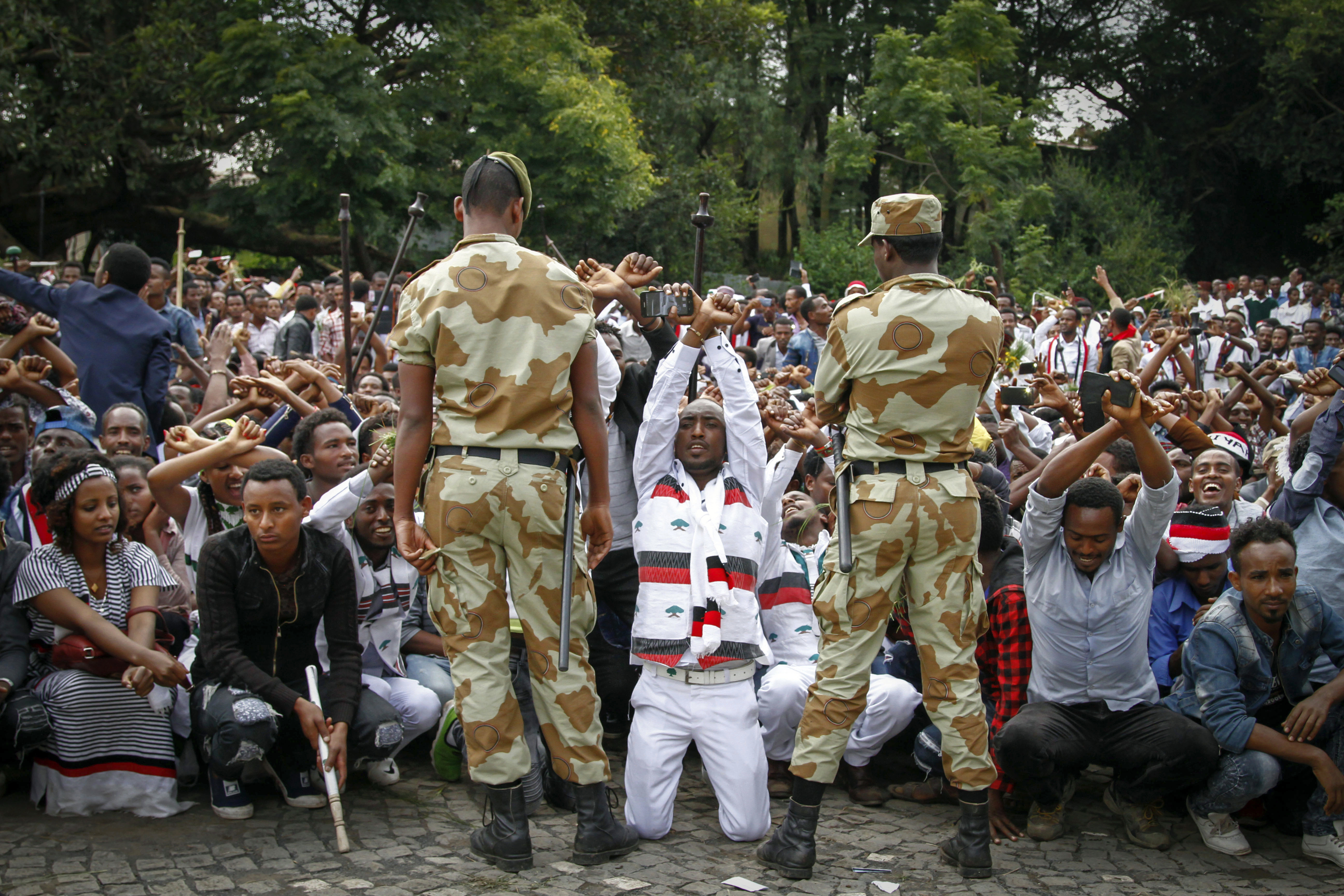New report alleges killings, mass detentions in Ethiopia
ADDIS ABABA: A new report by the rights group Amnesty International accuses Ethiopia’s security forces of extrajudicial killings and mass detentions even as the country’s reformist prime minister was awarded the Nobel Peace Prize.
The report issued Friday says security forces killed at least 25 people in 2019 in the East Guji and West Guji zones of the restive Oromia region amid suspicions of supporting a rebel group, the Oromo Liberation Army, and a once-exiled opposition group. And at least 10,000 people under suspicion were detained between January and September, with most “subjected to brutal beatings."
The government of Prime Minister Abiy Ahmed, who was awarded the peace prize in December for sweeping political reforms and restoring ties with neighboring Eritrea after two decades of hostilities, acknowledged that “the reform process has at times experienced bumps” but called the report “a one-sided snapshot security analysis that fails to appropriately capture the broader political trajectory and security developments."
The government statement rejected “malicious claims” of extrajudicial killings and the mass detentions but said if rights violations occurred, an investigation will be conducted “at the appropriate time."
Tensions among some of Ethiopia’s more than 80 ethnic groups have risen, along with some calls for more autonomy, and the new report also documents some of the intercommunal violence in the Oromia and Amhara regions, the country’s most populous.
Such violence is a concern as the country faces a crucial national election, now delayed because of the coronavirus, that will be a measure of support for the country’s changes since Abiy took office in early 2018.
With no election date set and mandates for the executive and regional and federal legislatures ending in October, political parties are disagreeing on strategies for how to avoid a potential constitutional crisis.
Amnesty acknowledged that Ethiopian authorities have made notable progress in changing the country’s bleak human rights record. But “with elections on the horizon, these violations and abuses could escalate out of control unless the government takes urgent measures to ensure security forces act within the law,” said Deprose Muchena, the group's director for East and Southern Africa, adding that “authorities must also recognize that holding diverse political views and opinions is legal.”
The new report blames a range of actors for the violence during 2019 including regional police special forces, local administration officials and armed youth and vigilante groups. The rights group noted that in the new, wider political space some politicians have been “stirring up ethnic and religious animosities,” sparking violence in five of the country’s nine regional states.
“The research finds a horrendously botched security operation at work in Amhara and Oromia regions characterized by impunity that is difficult to imagine in present-day Ethiopia,” Amnesty said. Former detainees told the rights group about multiple cases of arbitrary arrest and detention of family members, including children, when security officials couldn’t find the person they sought to arrest.
In the Oromia region, the government in January 2019 launched a law enforcement offensive against the Oromo Liberation Army, which had staged armed attacks in the region. The armed group broke away from the political wing of the once-exiled Oromo Liberation Front, which under Ethiopia’s reforms returned to the country to pursue a peaceful political agenda.
In the Amhara region, “at least 150 people were killed in inter-communal conflict in which the security forces were complicit,” the report said, noting that at least 58 ethnic Qimant, who seek more autonomy, were killed within 24 hours in January 2019. “The attacks and counter-attacks led to internal displacement of thousands of ethnic Amhara and Qimant people.”
The deputy head of the Amhara Regional Peace and Security Bureau told the rights group that more deaths could have occurred if the security forces had not been deployed and rejected the claim that security forces were complicit in some of the attacks.
Two opposition groups reacted to the new report with further allegations.
“The report covers the period up to the end of 2019. However, the situation in the Oromia region specifically has gotten progressively worse in 2020 with a substantial rise in mass incarcerations, extrajudicial killings and destruction of property in provinces that were not previously affected,” said a joint statement issued by the Oromo Liberation Front and Oromo Federalist Congress.
“The report is further proof that the new administration has not parted ways with the practice of forcefully stifling dissent.”






